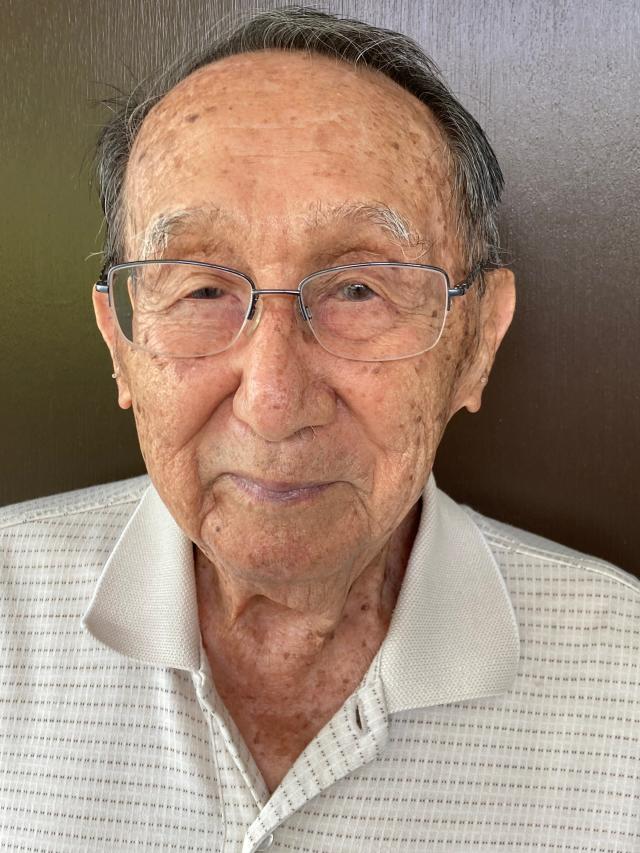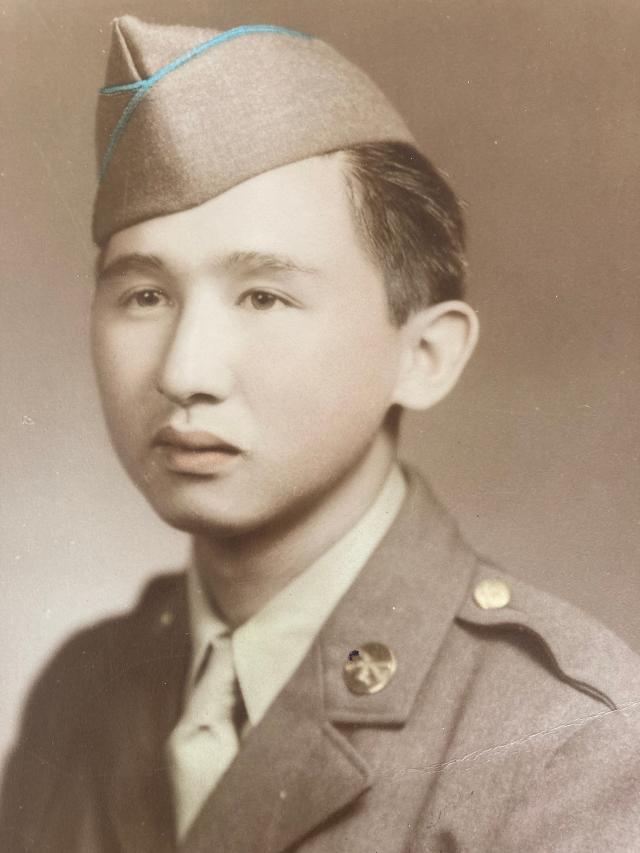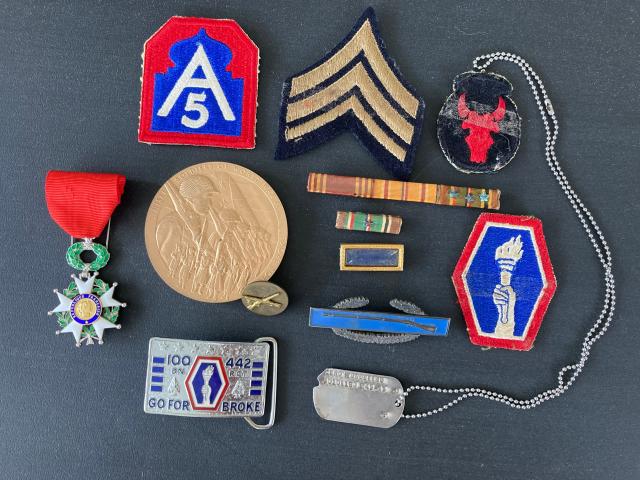Some people haven’t been treated right, yet were able to let go of wrongs and make decisions about what was the right thing to do. Veterans are our country’s heroes, and this story is about an ethnic group that was unjustly treated by fellow Americans, yet performed beyond expectations in World War II.
Gerry and I had the honor of meeting 100-year-old Iwao Yonemitsu, a World War II veteran of the Japanese American 442nd Infantry Regiment. Iwao was 19 years old, in his second year of college, when a call came from the U.S. War Department in 1943 for Japanese Americans to volunteer for military service, a change from the 1941 regulations when they were not allowed to enlist or be drafted because we were at war with Japan. Japanese Americans were labeled as enemy aliens. (We were also at war with Germany and Italy but the ruling was never considered for people of that ancestry.) Because there was a need for more soldiers to fight in Europe, the military rules were changed. Iwao and thousands of other young Japanese American men immediately answered the 1943 call.

When the war started in 1941, President Roosevelt ordered people of Japanese heritage to be moved into internment camps, which were similar to prisoner of war camps, and they were held there during the duration of the war. 120,000 Japanese Americans were in those camps. Amazingly, during that terrible situation, many young men in the camps answered the call to fight; they were Americans and wanted to show their allegiance to America even though their families had to remain imprisoned. Iwao lived in Hawaii, which was not yet a state, and only the leaders with Japanese ancestry were interned there. Iwao’s parents were planters in the sugarcane fields so his family was spared that awful fate.

Knowing how the Japanese were being treated, I wondered how Iwao’s parents responded to his volunteering. His parents told him, “Do the best. Don’t bring shame on the family.” They completely supported their son’s decision.
Within two weeks, Iwao was at Camp Shelby in Mississippi training to fight in a mortar squad. While in training, he had several eye-opening experiences. He was shocked to see how Blacks were treated in the South as there was no segregation in Hawaii. And, he visited an interment camp in Arkansas and saw the barbed wire fencing that enclosed Japanese Americans and the armed guards in towers to keep watch. From that experience he understood the pain his fellow servicemen from the states had to endure and yet answered their country’s call to show they were loyal Americans. Iwao, and over 2000 other Japanese American enlistees who had experienced freedom in Hawaii, empathized with their fellow Army volunteers who had experienced a very different life and were leaving behind incarcerated families.
In 1944, the 442nd Japanese American combat division fought successful battles in Italy, France, and Germany. Their slogan was “Go For Broke.” I asked Iwao what that slogan meant to him. He said, “Give it your all, never mind the consequences.” These men had a country to defend, also a race to uphold.

After intense combat and many losses, the 442nd liberated towns in southern France from German occupation. To honor them after the war, the French installed monuments and awarded each soldier with a Legion of Honor Medal. Texans were also grateful to the 442nd. In 1944 they saved a unit of the Texas 36th Infantry Division that was trapped by Nazi forces. Those battles are recorded as some of the fiercest and most heroic ones in American history. Texas didn’t forget. In 1959, Texans were big proponents of giving statehood to Hawaii.
The 442nd was nicknamed “The Purple Heart Battalion,” a decoration given to over 4000 in their unit. Fortunately, Iwao was only hit by a small piece of shrapnel; it hit his belt which protected him. That unit set high expectations for themselves and lived up to their “Go For Broke” slogan. Iwao said, “I am proud we performed to our expectations.”
The country was proud. Each serviceman in the 442nd Regiment was awarded the Congressional Gold Medal, the highest expression of national appreciation that Congress gives. The 442nd became the most decorated division of all the wars in United States history and still hold that prestigious status.
More: Local view: A garden full of memories is especially sweet at Mother’s Day
I call them “Unlikely Heroes” because no one would expect such heroic action from a group so prejudiced-against in our society. Furthermore, there were more “Unlikely Heroes”. Native Americans who had been repeatedly killed and driven from their lands to live on reservations in remote and uninviting locations provided the impossible Navajo code the enemy couldn’t break. And Blacks, who suffered the laws of segregation, were separated from Whites in military divisions, and were categorized as not having the ability to fly airplanes, received aviation training at Tuskegee and achieved a perfect record for no losses of the bomber planes they escorted with their fighter planes. Both the Navajo code talkers and the Tuskegee Airmen received the Congressional Gold Medal.
Iwao gained a philosophy from his war experiences that served him well through life. He said, “You have to work with all people. No two people are exactly alike. You have to work together. You have to depend on each other.” He learned the value of teamwork. He returned to Hawaii and the sugar plantations. His attitudes helped him rise to become superintendent.
People are people the world over. Heroes can be found in every ethnic group, no group should be considered “Unlikely.” On Memorial Day we honor all our heroes.
Carole Gariepy is a Phillipston resident and author of “Dragging Gerry around the World” and “Why Go There?”
This article originally appeared on Gardner News: Local view unlikely heroes World War II
